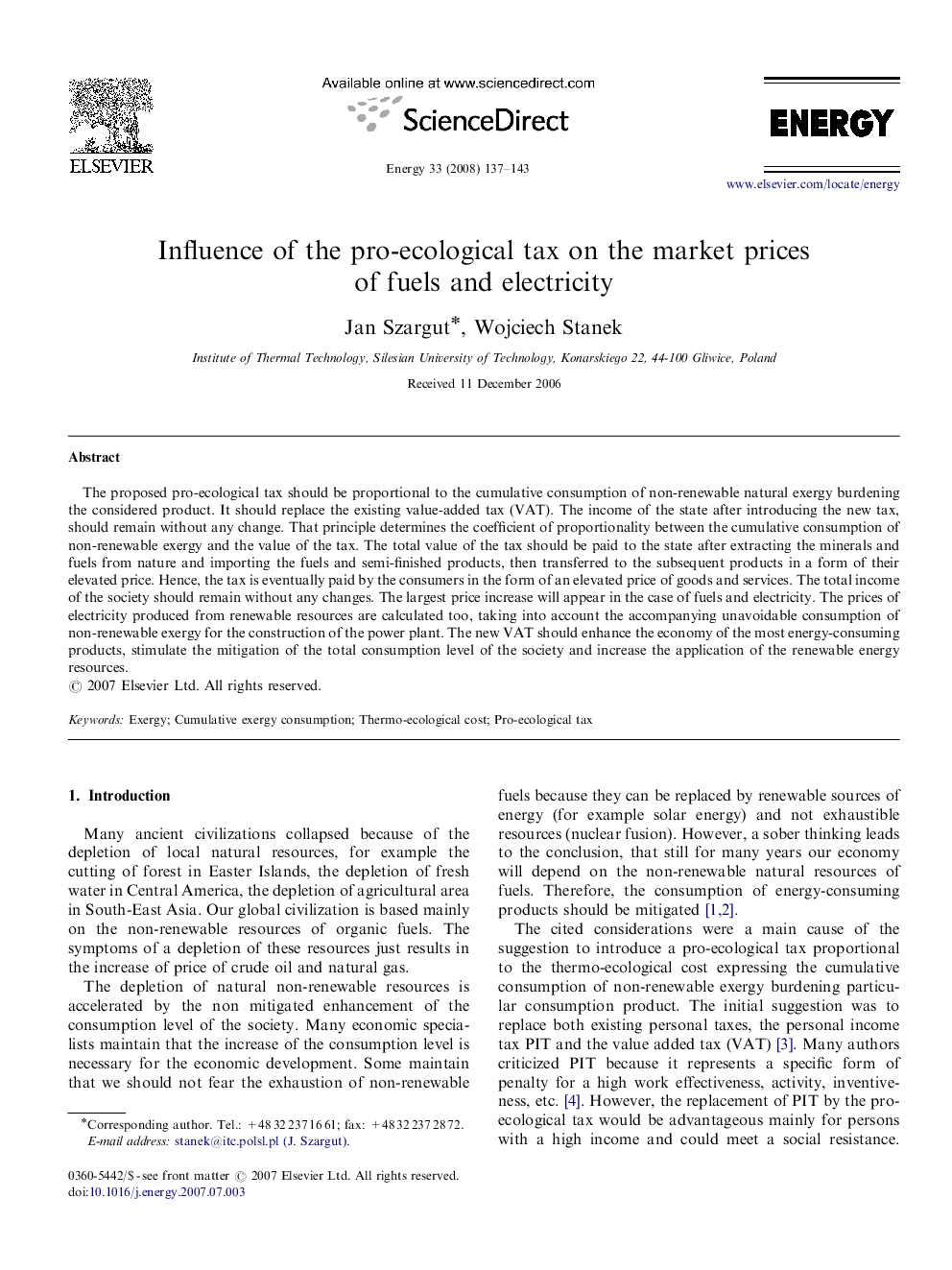| Article ID | Journal | Published Year | Pages | File Type |
|---|---|---|---|---|
| 1736248 | Energy | 2008 | 7 Pages |
The proposed pro-ecological tax should be proportional to the cumulative consumption of non-renewable natural exergy burdening the considered product. It should replace the existing value-added tax (VAT). The income of the state after introducing the new tax, should remain without any change. That principle determines the coefficient of proportionality between the cumulative consumption of non-renewable exergy and the value of the tax. The total value of the tax should be paid to the state after extracting the minerals and fuels from nature and importing the fuels and semi-finished products, then transferred to the subsequent products in a form of their elevated price. Hence, the tax is eventually paid by the consumers in the form of an elevated price of goods and services. The total income of the society should remain without any changes. The largest price increase will appear in the case of fuels and electricity. The prices of electricity produced from renewable resources are calculated too, taking into account the accompanying unavoidable consumption of non-renewable exergy for the construction of the power plant. The new VAT should enhance the economy of the most energy-consuming products, stimulate the mitigation of the total consumption level of the society and increase the application of the renewable energy resources.
